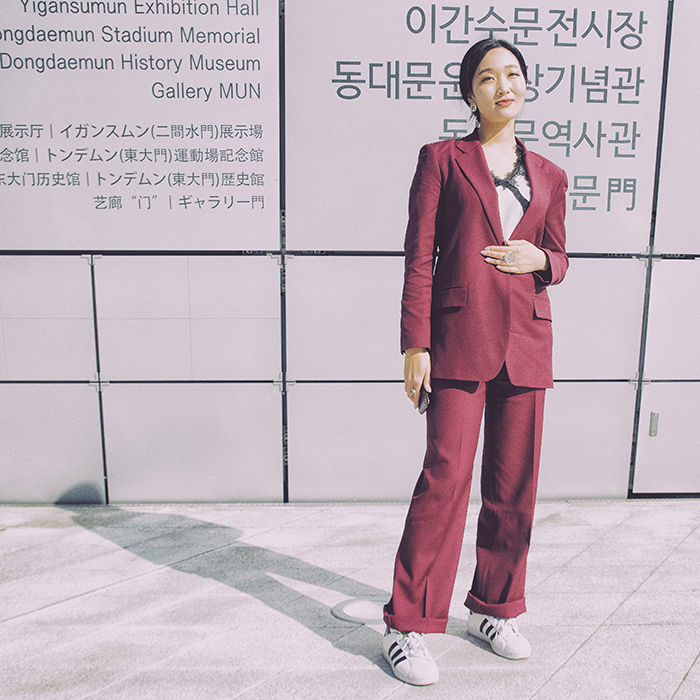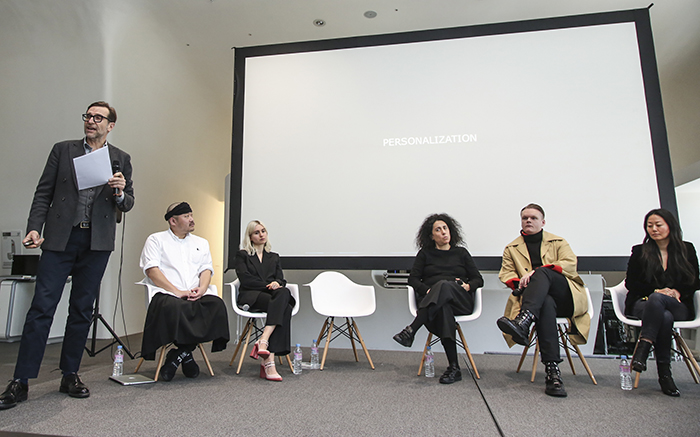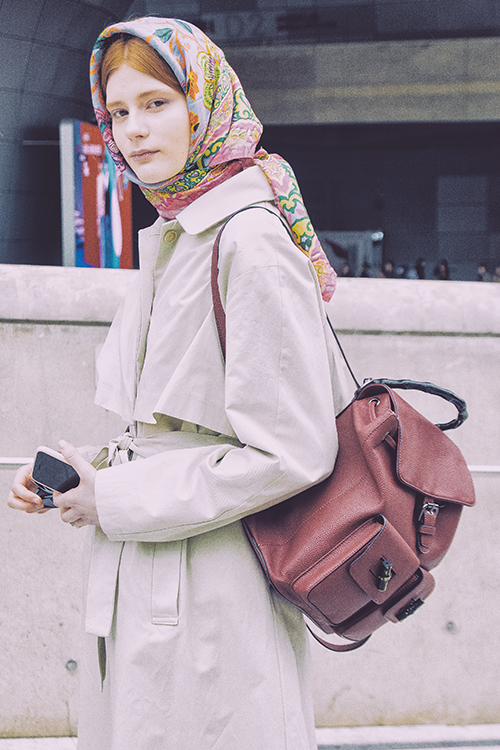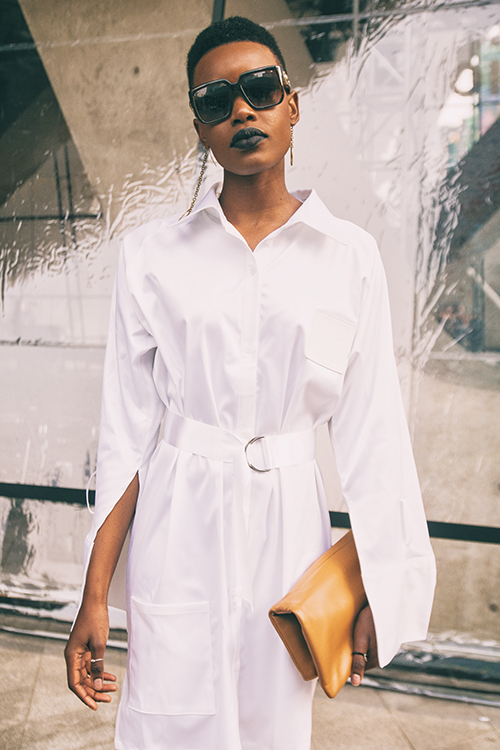View this article in another language
- 한국어
- English
- 日本語
- 中文
- العربية
- Español
- Français
- Deutsch
- Pусский
- Tiếng Việt
- Indonesian

Fashion Week, held every year, gives visitors a glimpse of fashion and current clothing trends.
By Korea.net Honorary Reporter Maiya Li from Kazakhstan
Photos = Maiya Li
"There is always a hat for every occasion," said Rune Park.
Once again, we can see the triumph of street fashion at the Hera Seoul Fashion Week 2018 in the capital of Korea, a city literally electrified by a mix of trends, which happens every year in March. Why street fashion? Simply because fashion is now dictated by millennials, people born between the early 1980s and the late 1990s or early 2000s. They make their choices in favor of high quality, uniqueness, one-of-a kind clothes, that are hand-made and authentic. It's not surprising that luxury brands, such as Prada, Gucci, Dior, Dolce & Gabbana or other fashion brands that produce "haute couture" clothes are slowly losing ground in favor of the recently-appeared, but already recognized, names that are worn by the "hypebeast," or "hypebae" crowds -- people obsessed by fashion -- like Vetements, Off-White, Supreme, Gosha Rubchinsky and others.
Why are millennials so important to luxury brands? It's quite easy to explain. Today, it's the millennials who are the main segment of buyers, who in their turn literally change the reality around themselves, thanks to the fact that they make choices in favor of impressions and emotions, and not for the unseemly price of expensive cars, watches or smartphones. Millennials can be young people who earn enough cash to shop, but who don't have large savings.
They would prefer to spend their hard-earned money on activities, rather than on luxury goods. Premium access to new opportunities and impressions is the new social currency, one that can be easily bragged about and instantly uploaded to their Instagram feeds. Millennials do not want things and goods to somehow define them, because they do not consider these purchases to be trophies or achievements, unlike the earlier Generation X or Baby Boomer generations.
In addition, in the age of digital technologies, millennials prefer to opt for online shopping for luxury brands, rather than in traditional offline showrooms, which brands also have to reckon with. For example, the largest retailer of women's clothing, Net-A-Porter, introduced the concept of the "EIP," the Extremely Important Person, which fully reflects the attitude of brands toward their customers in an effort to anticipate all their desires and as much as possible to satisfy any requests in the shortest time and from anywhere in the world.

Fashion experts talk about fashion trends during Seoul's Fashion Week.
A seminar at Seoul's Fashion Week was about just those trends in the world of luxury, bringing together fashion critics, fashion editors, buyers and fashion experts who acted as mentors. Among them were the fashion critic from Vogue U.K., Anders Christian Madsen, Editor-in-Chief of Dazed U.K. Isabella Burley, Retail Fashion Director at Net-A-Porter Lisa Aiken, Deputy Director-in-Chief at Vogue Italy Sara Maino, President of Dell'oglio Mario Dell'oglio, and Buyer at Henrik Vibskov Rune Park.
What distinguishes Korean street fashion from other fashions? First, there's a certain uniqueness that will make any self-respecting fashion influencer in New York or Paris blush. There's a uniqueness that manifests itself in simply unimaginable combinations of styles and colors.
Secondly, there's gender fluidity. This allows you to erase any gender limits and make unisex clothing that's convenient for everyone. At the same time, Korean men position themselves through feminine outfits, hair dyed in bright colors and well-groomed skin. In Korea, the mainstream manifests itself in fashion brands, borrowed from the social network profiles of stars and bloggers, for the most part their Instagram feeds. Young people here are very much dependent on fashion. They upload daily outfits onto their social media profiles and share information with their interlocutors online.
Compared to other countries, Korea is very tuned-in to trends and tendencies, which makes it extremely attractive to fashion brands and explains the global interest in Seoul Fashion Week. On the way to becoming a Korean pop star, there's still a language barrier, but the language of fashion is universal, and therefore Seoul has the right to be the fourth most fashionable capital in the world.
Learn more about the Hera Seoul Fashion Week 2018 here.


Models from different countries pose for photos at Seoul Fashion Week.
wisdom117@korea.kr
* This article is written by a Korea.net Honorary Reporter. Our group of Honorary Reporters are from all around the world, and they share with Korea.net their love and passion for all things Korean.